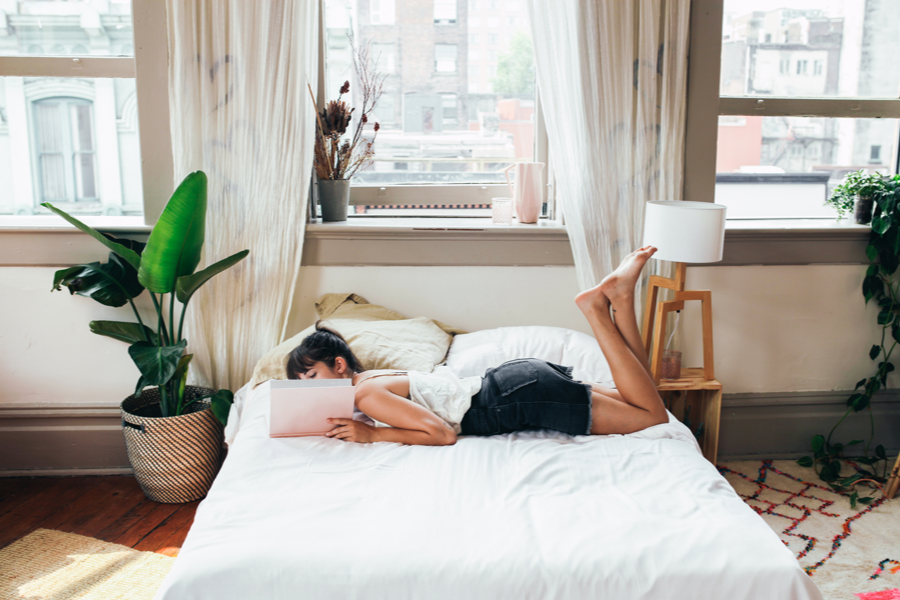Small business owners are the ultimate one-person show. You run it all: bookkeeping, advertising and marketing, delivering services and/or products, payroll, customer service and more.
Because of all these responsibilities, you're also at a higher risk of burnout. When you burn out, not only does our business suffer, but your own personal health does, especially if we're already anxious and depressed.
To reduce the likelihood of burnout, you need to practice routine self-care. Think of these habits as prevention rather than solving a problem. Don't wait until burnout comes knocking to start practicing healthy routines.
To reduce the likelihood of burnout, you need to practice routine self-care. Think of these habits as prevention rather than solving a problem. Don't wait until burnout comes knocking to start practicing healthy routines.
Plan Your Meals
When you work from home, it's easy to work in the kitchen and snack all day. Rather than lingering around your favorite bag of chips, use your kitchen to your advantage.
Plan out meals ahead of time. Schedule which meals you will cook at the beginning of the week, as well as the meals you plan to eat out. On your days off, practice meal prepping for the entire week. Apps like Yummly and Plan to Eat can help you research and save recipes to prepare in one sitting.
Plan out meals ahead of time. Schedule which meals you will cook at the beginning of the week, as well as the meals you plan to eat out. On your days off, practice meal prepping for the entire week. Apps like Yummly and Plan to Eat can help you research and save recipes to prepare in one sitting.
Don't Work Every Day
When you're self-employed, you need to be a self-starter. Those who already have that motivation in their blood make excellent small business owners. However, that drive can easy turn sour and unhealthy very quickly.
I even admit that I push myself way too hard to exceed my own personal expectations. There are only 24 hours in a day and at least two-thirds of that should be spent eating, resting, bathing and relaxing. Don't risk burning out by fitting too much into one day.
Since you can to make your own schedule, make sure you're taking off at least one day a week where you're not even responding to emails. Although this seems difficult to manage when finances are rough, it will pay off in the long-run, because resting helps build your endurance and cultivate your creative energy.
Ready to accept the challenge? To help fight the urge to check your email, try blocking your Gmail account one day per week. Mashable compiled a list of website blockers, including RescueTime, which also track how much time you spend on certain website and apps.
I even admit that I push myself way too hard to exceed my own personal expectations. There are only 24 hours in a day and at least two-thirds of that should be spent eating, resting, bathing and relaxing. Don't risk burning out by fitting too much into one day.
Since you can to make your own schedule, make sure you're taking off at least one day a week where you're not even responding to emails. Although this seems difficult to manage when finances are rough, it will pay off in the long-run, because resting helps build your endurance and cultivate your creative energy.
Ready to accept the challenge? To help fight the urge to check your email, try blocking your Gmail account one day per week. Mashable compiled a list of website blockers, including RescueTime, which also track how much time you spend on certain website and apps.
Schedule Breaks Throughout the Day
Similar to taking at least one day off per week, schedule breaks throughout your working day, not just for lunch. For instance, Lifehacker recommends the Pomodoro Technique, or the concept of breaking down a large task into timed intervals — called "Pomodoros"—which are spaced out by brief breaks.
Personally, I work 45 minutes out of every hour on the clock. This way, I am taking a break for at least 15 minutes — either on one single break or three five-minute breaks — every hour to use the bathroom, stretch, answer texts, etc.
As solopreneurs, it's tempting to push ourselves, but you'll be less stressed and more productive if you meal prep, take a day off and schedule regular breaks throughout your shift.
Personally, I work 45 minutes out of every hour on the clock. This way, I am taking a break for at least 15 minutes — either on one single break or three five-minute breaks — every hour to use the bathroom, stretch, answer texts, etc.
As solopreneurs, it's tempting to push ourselves, but you'll be less stressed and more productive if you meal prep, take a day off and schedule regular breaks throughout your shift.
 Danielle Corcione Danielle is a freelance writer with bylines in Teen Vogue, Esquire, Vice, and more and runs a blog, The Millennial Freelancer.
Danielle Corcione Danielle is a freelance writer with bylines in Teen Vogue, Esquire, Vice, and more and runs a blog, The Millennial Freelancer.





